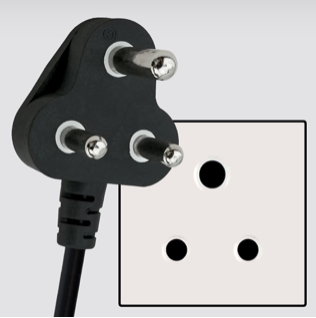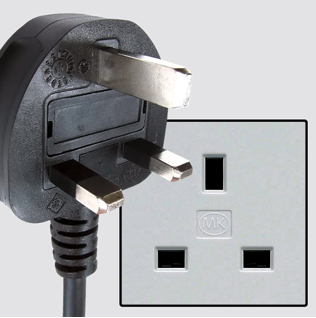The Maldives / ދިވެހިރާއްޖޭގެ ޖުމްހޫރިއްޔާ – Let’s explore here

What’s it like in the Maldives?
The Maldives is a stunningly beautiful country in the Indian Ocean, south west of India, in southern Asia. It’s actually composed of a set of 26 atolls, containing 1,192 coral islands, making it one of the world’s most dispersed countries. As the world’s lowest country, it’s so flat, that on average, the height is less than 5 feet (1.5m) above sea level, and its highest point is only 7 feet 10 inches (2.4m)!
The Maldives faces significant environmental challenges, particularly from climate change. The islands are extremely vulnerable to rising sea levels, which threaten to submerge parts of the nation. Efforts to raise international awareness about climate change and its potential impact on small island nations have been a central focus of Maldivian foreign policy.
The country has also promoted sustainable tourism as a key part of its economy, capitalising on its natural beauty, coral reefs, and luxury resorts, which attract millions of visitors annually.
The population of the Maldives is around ½ million people (2022), about two in five of whom live in the metropolitan area of the capital, Malé. It relies heavily on tourism.
It’s a truly beautiful place with stunningly soft white sand, and amazing snorkelling and diving opportunities. The food is great too, so long as you like seafood! Plus, it feels like you’re in a wildlife programme on the TV – incredible!

A bit about the history of the Maldives
Early History and Settlement
The Maldives has a long history, with evidence suggesting that it was settled as early as 500 BC. The earliest inhabitants were likely from the Indian subcontinent, and the archipelago was initially influenced by Indian and Sri Lankan cultures. The Maldives has traditionally been a seafaring society, with its economy built on fishing, trade and its position along important maritime routes.
Buddhism and Islamic Influence
For much of its early history, the Maldives practiced Buddhism. The arrival of Islam in the 12th century marked a significant shift in the religious and cultural landscape. According to tradition, the Maldives converted to Islam after a visit from a north African scholar, Abu al-Barakat, who is credited with introducing the religion to the islands. Islam became the official religion, and the Maldives has remained a predominantly Muslim nation since then.
Sultanate Period
By the 16th century, the Maldives had been established as a sultanate, and local rulers held significant power. The Sultanate was a key part of the region’s maritime trade network, interacting with various empires and states, including the Portuguese and the Dutch. The Portuguese briefly occupied the Maldives in the 16th century, but they were driven out in 1573 by the local sultanate, which marked a period of independence. The Maldives continued as a sultanate under various local dynasties, and in the 19th century, it became a British protectorate. Although it retained its internal autonomy, the British controlled the islands’ defence and foreign relations during this time.
British Protectorate and Independence
The Maldives remained a British protectorate until 1965 when it gained full independence. The British retained control of a military base on the island of Gan, but it was handed back to the Maldives in 1976. In 1968, after the monarchy was abolished, the Maldives became a republic.
Modern Political Developments
In the years following independence, the Maldives experienced political instability, with various leaders and political parties vying for power. During the 1970s and 1980s, President Ibrahim Nasir and his successors implemented economic reforms, including tourism development, which significantly transformed the nation’s economy. In 2008, the Maldives transitioned to a multi-party democracy with the election of Mohamed Nasheed, the first democratically elected president of the country. However, Nasheed’s presidency faced challenges, including political opposition and environmental issues related to climate change, given the Maldives’ vulnerability to rising sea levels.
Recent Political Landscape
In 2012, President Nasheed was forced to resign amid political unrest, and his successor, Mohamed Waheed, assumed the presidency. Nasheed returned to power briefly but faced further political turbulence, and by 2013, his government faced charges of corruption and abuse of power. The political climate remained tense with concerns over democratic governance, freedom of speech and human rights. In 2018, President Ibrahim Solih won the presidential election, marking another shift in the country’s leadership. His government has worked to address the country’s economic challenges, environmental concerns and promote democratic reforms.

Maldives road trip
We visited the beautiful Maldives some years ago, visiting the beautiful island of Kuredu, which we understand has changed quite dramatically since we were there! We also visited a number of other islands, including one with a school. Our journey really enhanced our knowledge of this intriguing and beautiful country, and enabled us to meet some interesting local people.
What’s it like to drive in the Maldives?
They drive on the left hand side of the road in the Maldives. The last time that we visited the Maldives, we were transported around the islands via boats. There were no roads on any of the islands that we visited, and we saw no vehicles outside of the International airport.
Do you require an international driving permit in the Maldives?
We’ve created a dedicated page to driving abroad, which answers this question, and more, which you might find helpful.
Can you use your UK driving license when driving through the Maldives?
We’ve created a dedicated page to driving abroad, which answers this question, and more, which you might find helpful.
Do I need a carnet de passages to drive in the Maldives?
We’ve created a dedicated page to driving abroad, which answers this question, and more, which you might find helpful.
What currency do they use in the Maldives?
In the Maldives they use the Maldivian Rufiyaa, although outside of the capital, Malé, US dollars and Euros are the main unit of currency. Cash is widely used. The use of credit / debit cards is widely accepted. Travellers cheques are not readily accepted. There are many ATMs in resorts throughout the country.
You should make yourself aware of the amount that your bank charges you for using credit and debit cards abroad. Often credit cards are cheaper for purchasing items directly, and for withdrawing cash from ATMs.
What language do they speak in the Maldives?
They speak Dhivehi or Maldivian in the Maldives. Although English is also widely spoken.
What time zone is the Maldives in?
Remember, when you’re planning your next trip to take a look at what time zone it’s in.
Do I need a visa to visit the Maldives?
We’ve created a dedicated, more comprehensive page on visas, which you should find helpful. Check it out!
Is wild camping legal in the Maldives?
Yes, wild camping is fine in the Maldives.
What plug / socket type do they use in the Maldives?
In the Maldives they use plug / socket types D and G.


Health issues in the Maldives
Is it safe to drink water in the Maldives?
Yes, it is safe to drink tap water in the Maldives. Bottled water is also readily available across the country.
What vaccinations are required for the Maldives?
This NHS website is kept up to date with all relevant information on vaccinations in the Maldives.
Phones in the Maldives
What is the country calling code for the Maldives?
The country calling code for the Maldives is +960
What are the emergency phone numbers in the Maldives?
- The emergency number for police in the Maldives is: 911 / 119
- In the Maldives, the emergency number for ambulance is: 922 / 100
- The emergency number for fire in the Maldives is: 911 / 118
If you’ve got some useful info that you’d like to share, let us know!
And don’t forget to check out all the other pictures!
